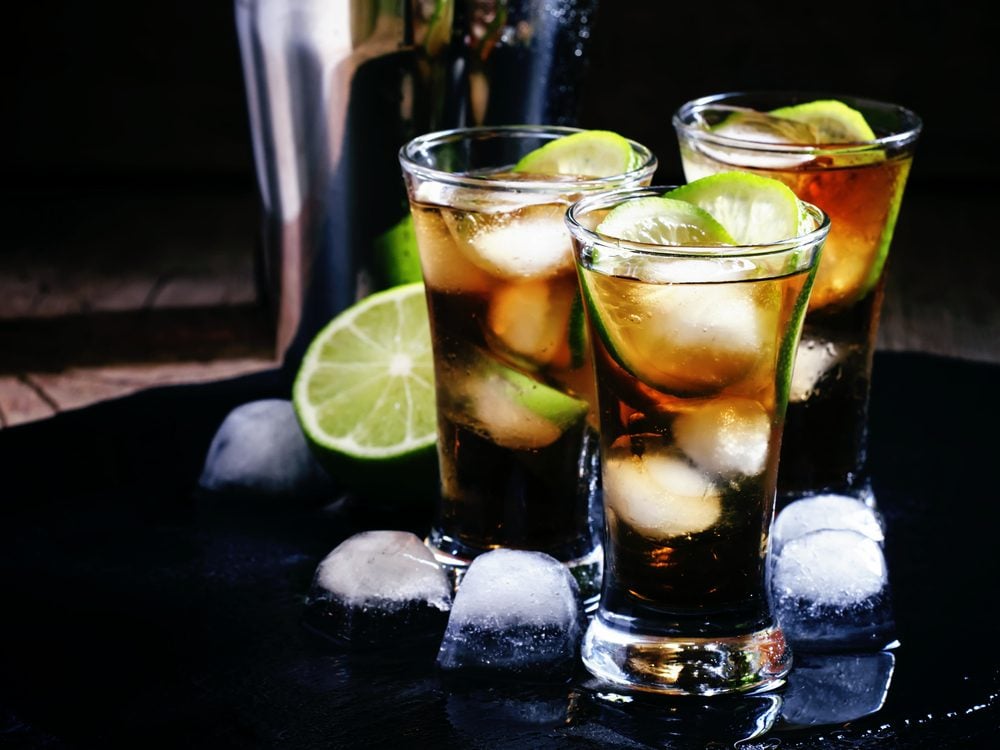
You mixed your drink with diet soda
Your blood alcohol level will spike faster if your cocktail contains diet soda compared to regular soda, according to a small study recently published in the journal Alcoholism: Clinical and Experimental Research.
In two different sessions, study participants drank the equivalent of three to four mixed drinks in a short period of time. When they drank vodka mixed with regular soda, their peak blood alcohol level measured 0.077, just under the legal limit of 0.08. But when they drank vodka mixed with diet soda? Their blood alcohol measured 0.091. Their perception was altered, too: After drinking diet drinks, people performed statistically worse on computer tests compared to how they did after sipping the regular version, even though they reported no noticeable change in how they felt or performed.
Here are 10 Tips to Cut Back on Your Drinking.
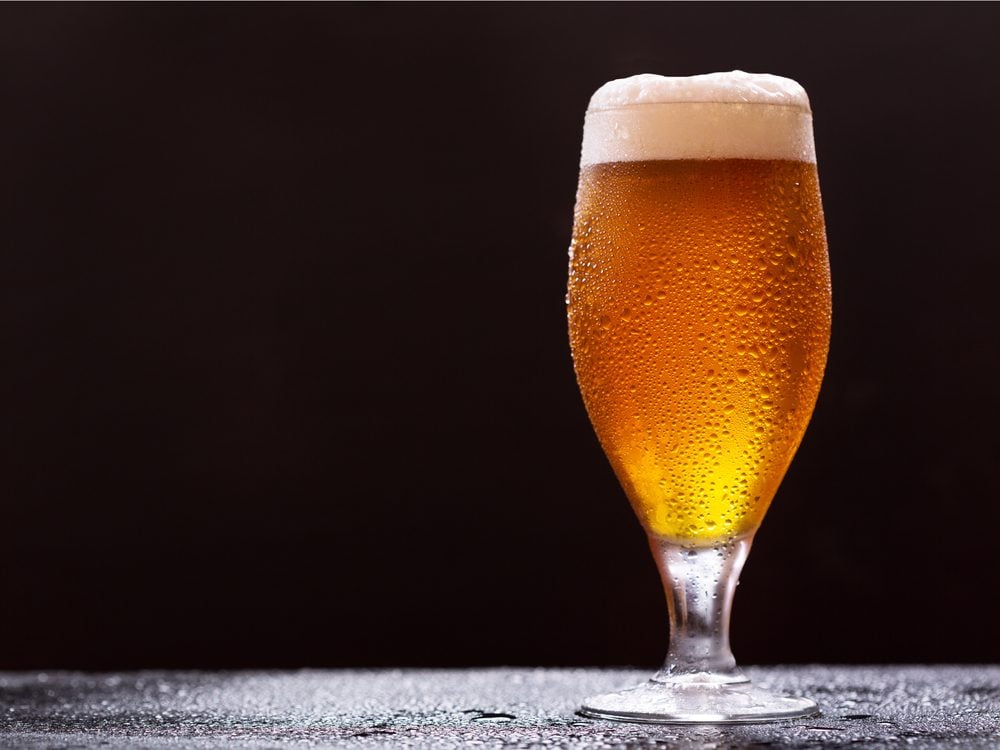
You chose a curvy glass
How well you “pace yourself” during a cocktail party may have to do with your glass. Study participants drank twice as slowly when their lager was in a typical “straight-sided” glass compared to when it was an angled “beer flute,” researchers at the University of Bristol found last year. The findings suggest that it may be harder to judge the halfway point of your drink in shaped glasses, according to Science Daily.
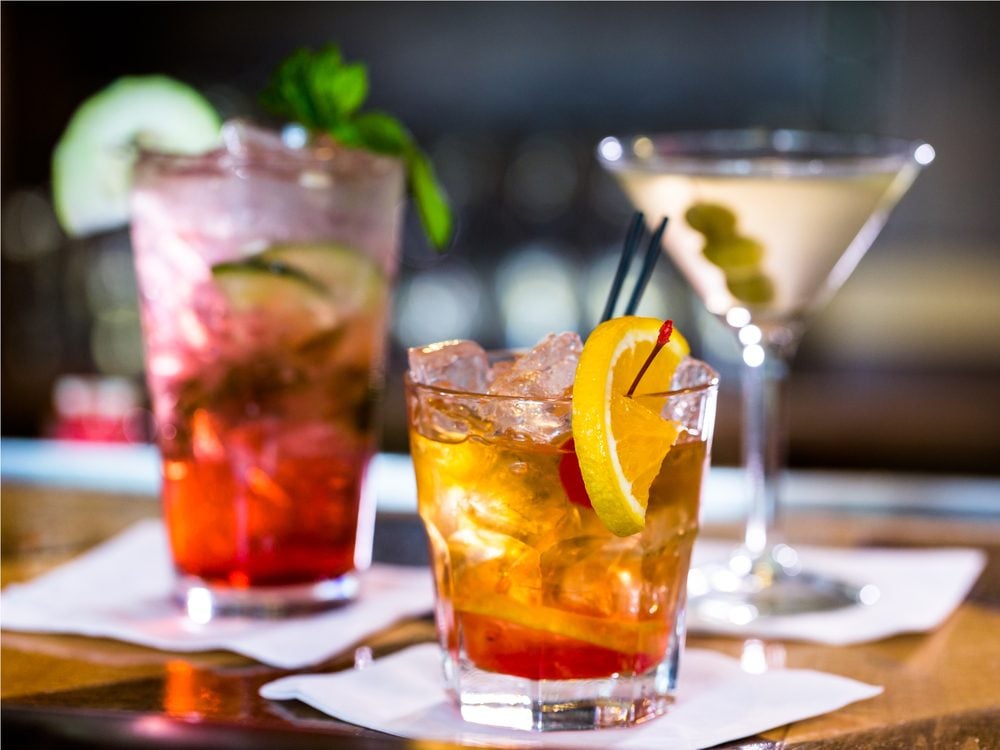
You liked how your drink tasted
Flavour itself can affect behaviour, Scott Krakower, MD, medical director of the Mineola Community Treatment Center, told HealthDay News. When you want a drink, just a small taste of it can activate your brain’s “more, please!” reward system and trigger the desire to drink more.
In recent studies at Indiana University School of Medicine, researchers gave a group of men just a half ounce of low-alcohol beer, their drink of choice. Based on the beer flavour, the subjects reported an increased desire to drink more than compared to when they sipped Gatorade.
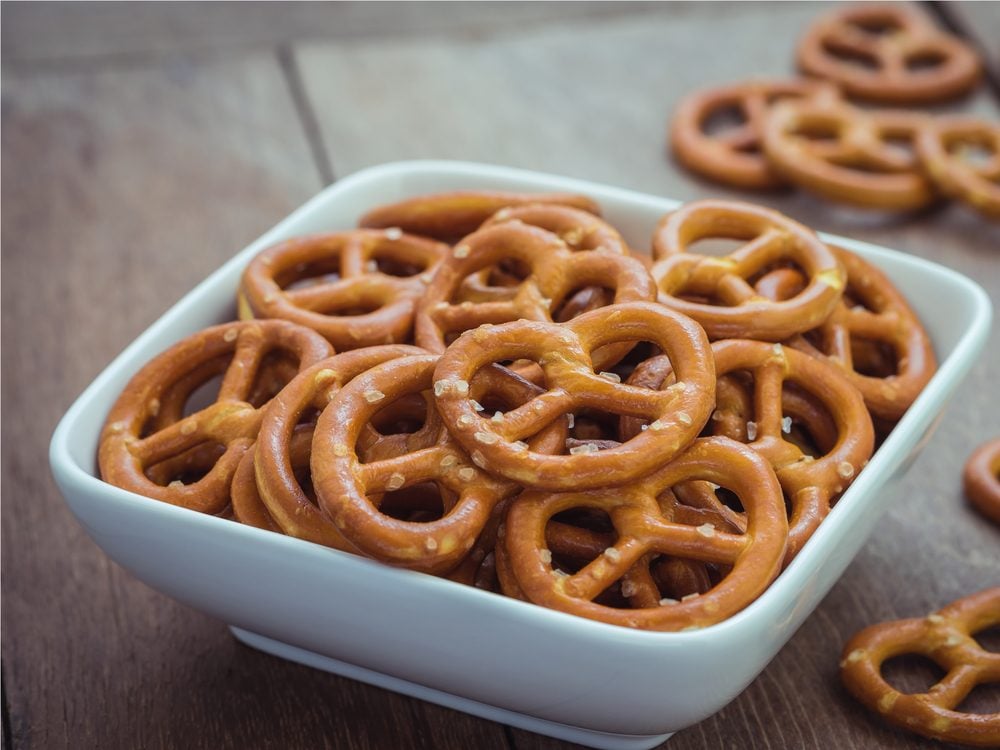
You’re eating low-fat or fat-free foods
It’s no secret that imbibing on an empty stomach makes your drink go to your head (literally) faster. But even eating low-fat or fat-free foods can alter how drunk you get. Foods with a higher fat content take more time to leave the stomach and can slow the rate at which your body absorbs the alcohol from your digestive tract, according to the National Institute on Alcohol Abuse and Alcoholism. If you can, opt for those bar nuts—a great source of healthy, unsaturated fat—over the low-fat pretzels.
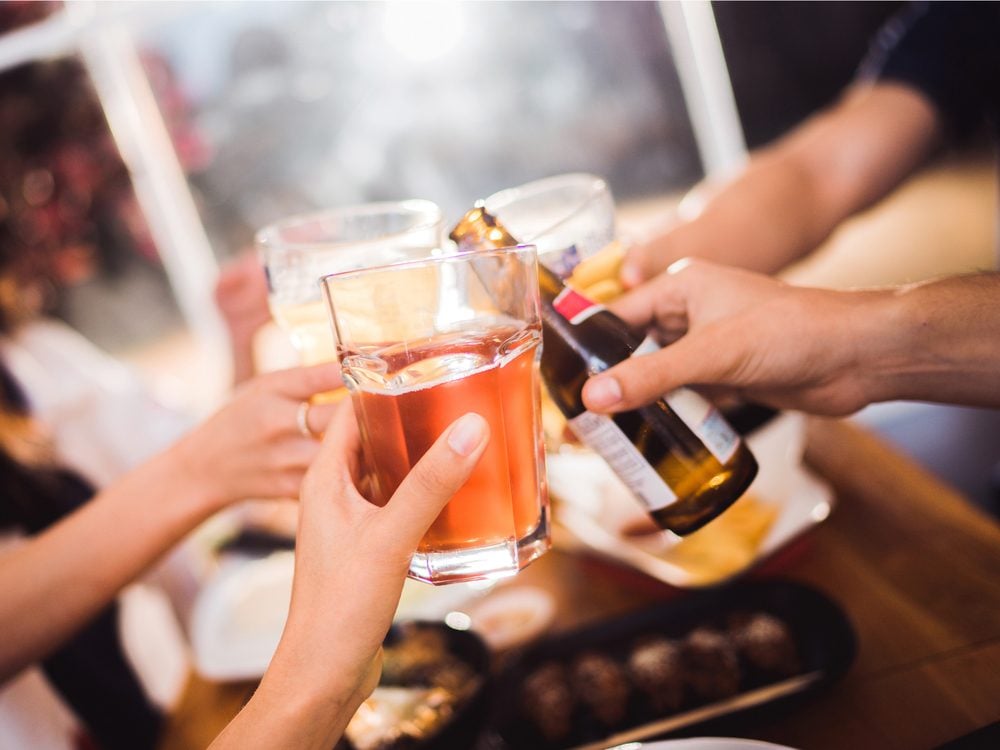
You were psyched to have a good time
Itching for a fun night out with friends or your spouse? You may get “drunk” more easily. Perception plays a big role not in how drunk you actually are, but in how drunk you feel, according to ABC News. People have begun to act drunk when they were told there was alcohol in their glass even if there wasn’t any. Likewise, when people won’t act as drunk when their drinks are spiked with alcohol if they aren’t aware of it.
We trotted the globe to seek out the best hangover cures.
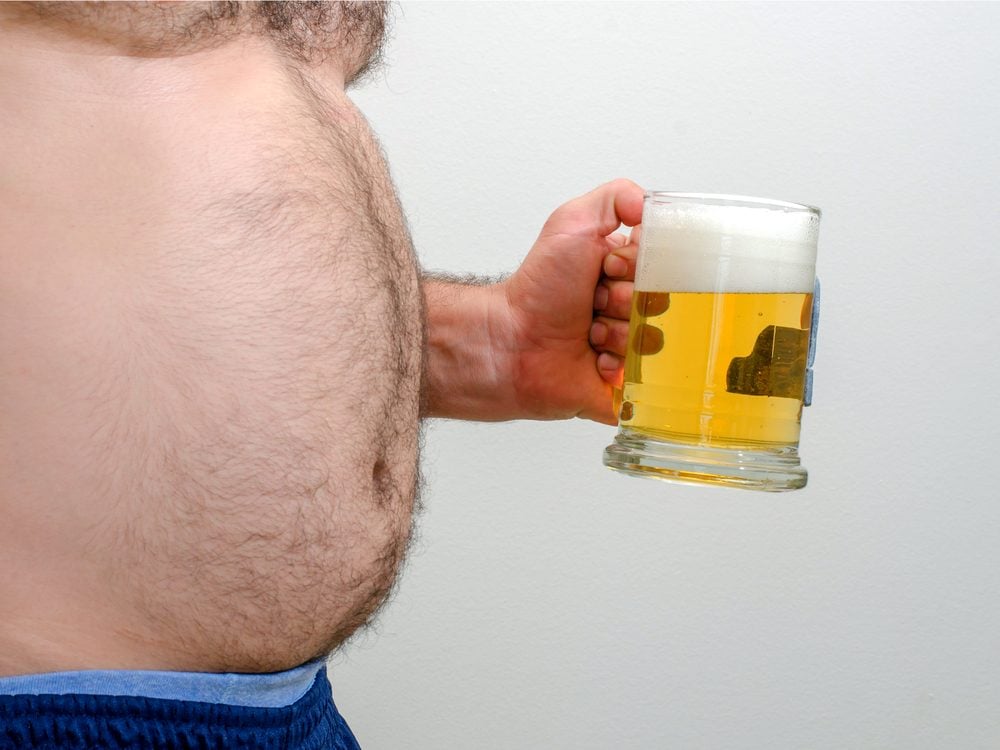
You aren’t pumping iron
Of course, your size would affect how quickly you absorb alcohol—picture a petite sorority sister versus a hulky male linebacker. But the percentage of your body fat to muscle mass plays a role too. Because alcohol is more soluble in water than in fat, a 150-pound person with more lean muscle mass (who has less fat) will be less affected by the same number of drinks as a 150-pound person with more body fat.
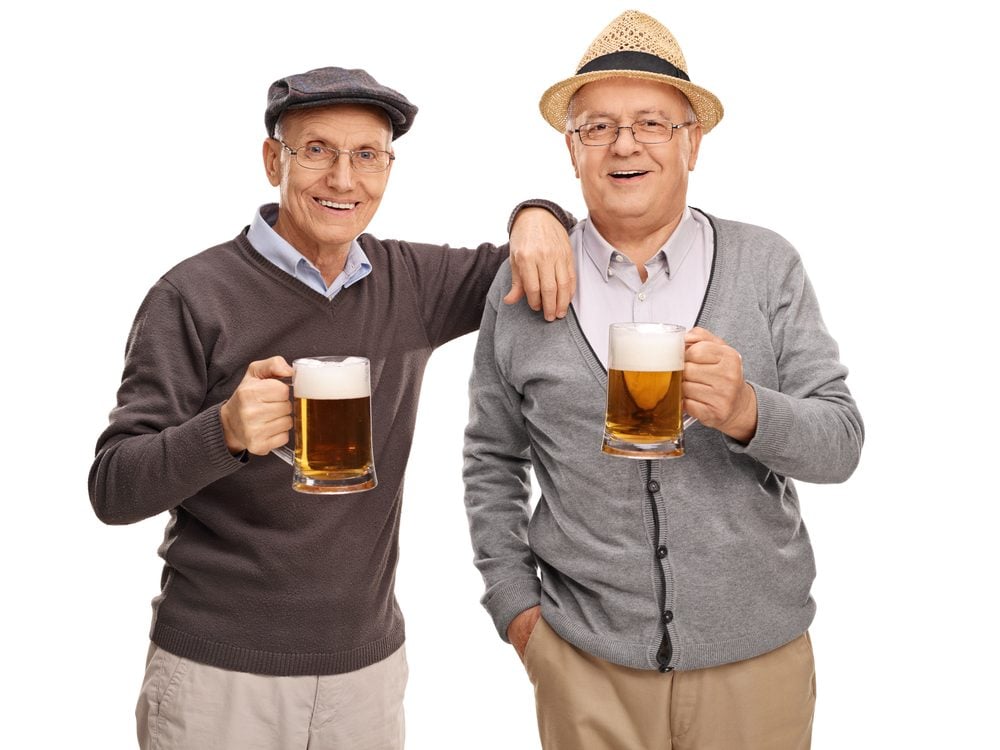
You’re getting older
The older you get, the more easily you become intoxicated, thanks to a number of physical changes in your body. One is the decrease in the metabolism of alcohol in your digestive tract, and a decrease in body water. “Older people can be snowed by alcohol amounts that hardly touched them when they were younger,” Peter Martin, MD, director of the Division of Addiction Psychiatry at Vanderbilt University Medical Center told ABC News.
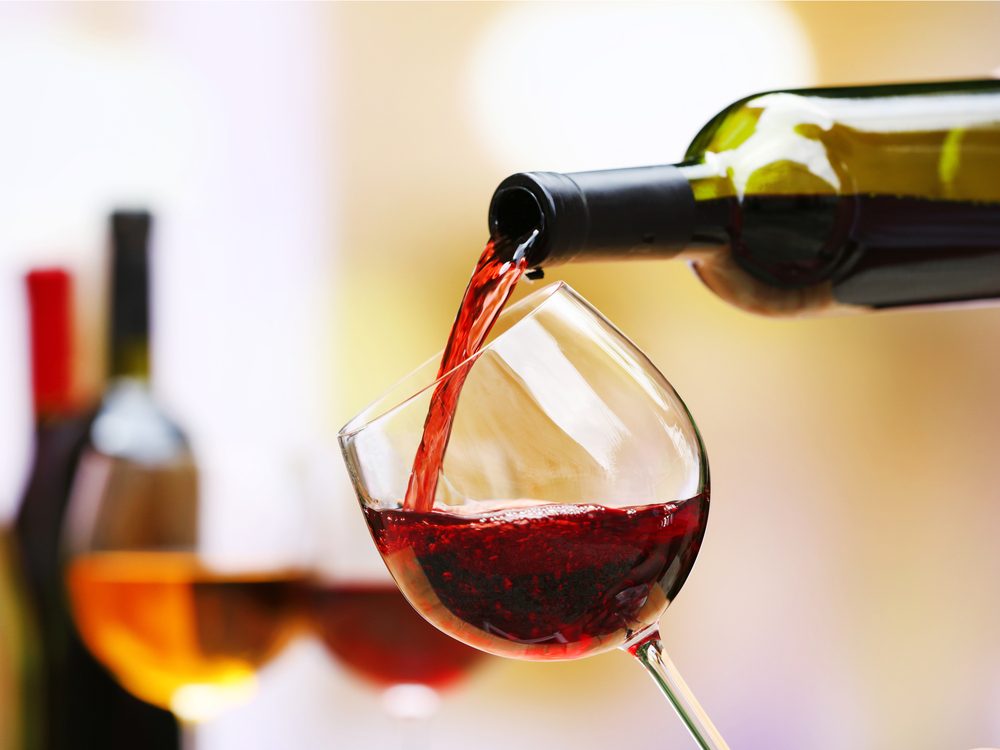
You’ve had weight-loss surgery
The thousands of Canadians who have gastric bypass surgery each year may face an unexpected side effect: a much lower tolerance. Stanford University researchers conducted a small health study, in which they gave 5 ounces of red wine to 19 post-operative gastric bypass patients and 17 controls. They were told to polish off the drink in 15 minutes. The surgery patients reached a peak blood-alcohol level of 0.08 per cent (the legal limit) while the control group reached only 0.05 per cent, according to Medical News Today.